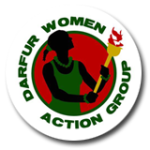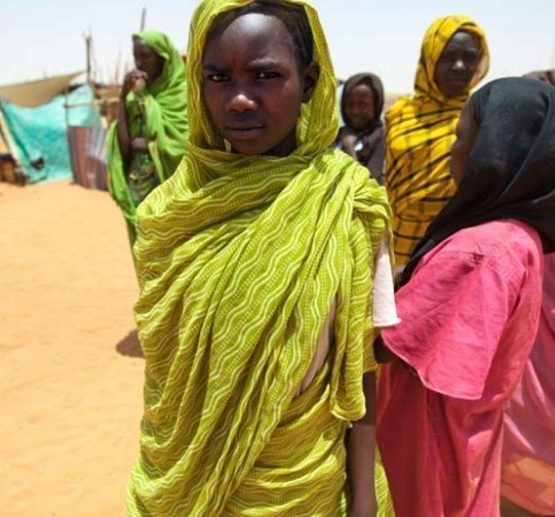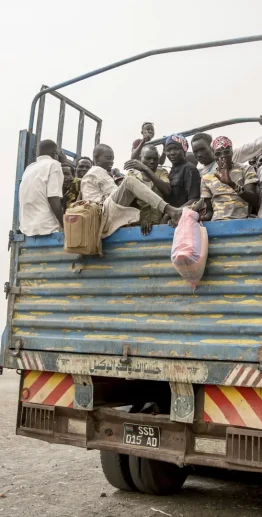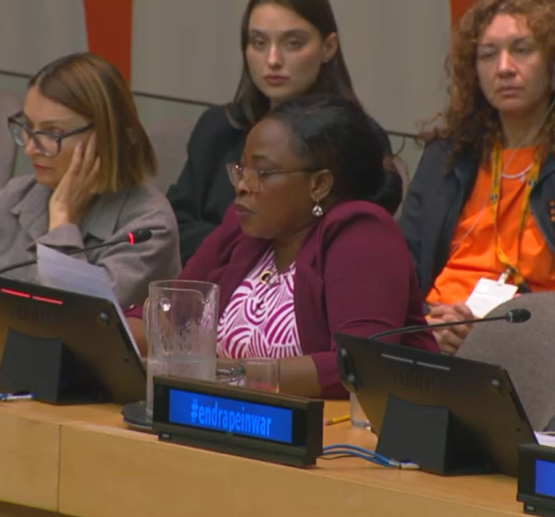Darfur Women Action Group (DWAG) is extremely concerned about the escalating second wave of COVID-19 across Sudan, which is inflamed by a deepening financial crisis, limited access to medical services, ongoing displacement due to violent attacks in Darfur, and a huge migration of Ethiopian refugees fleeing deadly conflict.
To date, there are 16,431 confirmed cases of COVID-19 and 1,202 confirmed deaths in Sudan, according to the World Health Organization (WHO). In Darfur alone, there have been more than 149 confirmed cases, although the actual number is estimated to be much higher due to the short supply of medical facilities for proper reporting. It was recently revealed that the Sudanese Minister of Health, the Director of the Basic Health Care Administration, and the Director of the Ministry’s Clinical Medicine Department had all contracted COVID-19 and were receiving treatment. In a press statement released Tuesday, November 17, Sudan’s Ministry of Health called on all residents to adhere to the country’s COVID-19 guidelines to further prevent the spread and better identity case totals. The undersecretary of Sudan’s Ministry of Health announced that a new lockdown is being floated as a possible step to control the increasing daily infection rate.
The pandemic has made visible the scarce healthcare resources in Sudan. An estimated 81% of Sudan’s population does not have access to a functioning healthcare facility within two hours of where they reside. The pandemic led to the shutting down of almost half of all health centers in the Khartoum State. By June 12, the Darfur region only had about 600 health facilities for its population of 9 million, forcing rural residents to travel extremely long distances to reach these medical services. With an inadequate number of health centers in Darfur, doctors presume the actual numbers of COVID-19 cases and deaths in the region are high but are unable to be accurately tracked by the interim government or humanitarian groups. As of November 13, all isolation wards across the country were reportedly full, even as case numbers continue to rise at a significant rate.
We have already seen COVID-19 directly impact the health and wellbeing of women and girls in Darfur. The shutting down of clinics and strained humanitarian resources have prevented women and girls from accessing much needed maternal health and reproductive services. Women and girls living in IDP camps, in particular, lack access to feminine hygiene products and health services. Also alarming is the impact of COVID-19 on pre-existing gender inequalities in Sudan. Lockdowns and displacement, due to the pandemic, make women more vulnerable to gender-based violence (GBV). Social stigmas prevent women from sharing their experiences of abuse, so an unknown number of victims are forced to suffer in silence. There is an urgent need to safeguard women and girls’ physical protection and access to essential medical resources.
Also noticeable are the impacts of COVID-19 on Sudanese children. More than 110,000 children in Sudan missed getting essential vaccinations. UNICEF in Sudan has been working during the pandemic to ensure that children receive measles and polio vaccines to suppress further outbreaks of these diseases. The start of the school year was initially postponed from September 27 until November 22, due to the pandemic and mass displacement. Yet following the recent public outcry over the rapid spread of COVID-19 throughout the country and approaching school opening, the Higher Committee for Health Emergencies announced that the opening of schools is postponed until further notice. Loss of education and vaccinations, combined with inadequate nutrition and medical services due to COVID-19, intensifies the vulnerability of a generation of Sudanese children.
Yet a deepening financial crisis and increasing prices have hindered the initiatives of UN agencies and other humanitarian groups trying to acquire medical supplies to combat the pandemic and respond to immediate population needs. Additionally, government forces continue to be involved in the destruction of refugee camps and the harm of innocent civilians, leading to more mass displacement and the need for shelters. Health facilities in IDP camps are especially hampered by this displacement and economic crisis because they lack the necessary funding to provide adequate supplies and services to new waves of Darfuris seeking protection. With many people out of work, displaced, and without the necessary support and money for food, an estimated one in four people in Sudan face food shortages. Most recently, the country has been responding to an influx of Ethiopian refugees seeking protection and medical assistance, which further exhausts the resources of humanitarian agencies.
Following the wet season flooding this year, DWAG engaged in a relief project to provide supplies and personal protective equipment (PPE) to the IDP camps of Darfur via our local humanitarian partners. We have also connected women across Darfuri communities and camps, and also women in Khartoum, via our Women Empowering Women (WEW) circle. The goal of WEW is to help facilitate access to necessary resources and services, as well as to build a women’s network, in which relevant information such as COVID-19 protective measures, coping mechanisms, and emotional support may be passed along. We have also sponsored COVID-19 emergency responses on a family-by-family and community-by-community basis tailored to specific population needs.
With the mounting economic crisis, millions still in makeshift camps, new waves of Ethiopian refugees entering Sudan, and growing food insecurity, the risk of COVID-19 will most likely increase among vulnerable populations, especially those in IDP camps. In the face of this multi-layered disaster spanning the entirety of Sudan, international leaders and the interim government must continue to take swift action to control the pandemic and respond to suffering populations. Humanitarian services desperately require more immediate funding to bring life-saving assistance and more trained medical professionals to vulnerable Darfuri populations. We all have a part to play in sharing updated COVID-19 information, raising awareness of the impacts of the disease on vulnerable populations in Sudan, and calling on the international community to usher in new funding for medical services.




